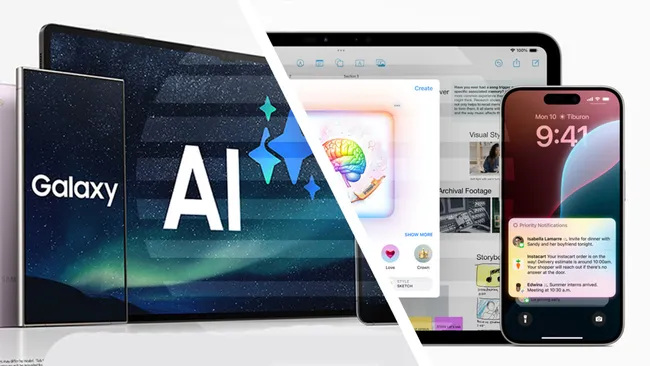In the rapidly evolving landscape of artificial intelligence, two giants stand at the forefront: Samsung Galaxy AI vs Apple Intelligence. Each represents the pinnacle of AI technology within their respective ecosystems, bringing a host of advanced features to the smartphones they power.
The new Galaxy AI capabilities include Sketch to Image, which converts your rapid drawings into more professional-looking designs, Interpreter, which can translate between languages for phone calls or individuals you meet in real time, and Composer, which creates AI-generated emails.
Some or all of these tools will be available on Samsung’s different new devices, which we’ve already had the opportunity to test; see our hands-on Galaxy Z Fold 6 review, hands-on Galaxy Z Flip 6 review, hands-on Galaxy Ring review, and hands-on Galaxy Watch Ultra review for our initial impressions. Some capabilities will also be available on previous Galaxy smartphones, and we’ve prepared a comprehensive guide to Galaxy AI compatibility to explain everything.
However, Samsung is far from alone in focusing heavily on AI right now, and many of the new and existing Galaxy AI capabilities are remarkably similar to those found in Apple Intelligence. This was introduced at Apple’s WWDC 2024 in June, and it will be accessible with iOS 18, iPadOS 18, and macOS 15 Sequoia roll out later this year, probably in September.
Given that Samsung’s next handsets will be available on July 24, the Korean business will have an advantage over Apple in terms of new AI features – but does first come first? Here’s how we see the tech titans shaping out as the AI conflict reaches a new phase.
Image Wand vs Sketch to Image
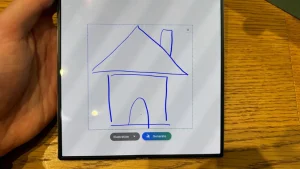
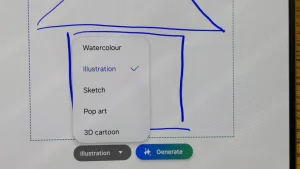
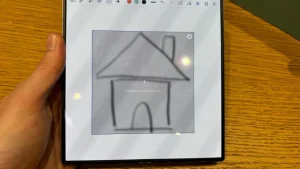
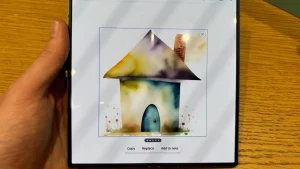

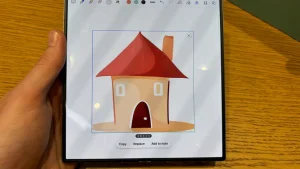
Both Apple Intelligence and Galaxy AI include an interesting AI tool that converts your sketches into drawings. This is what you’ll want to attempt initially on both systems.
Apple calls its function Image Wand, but Samsung’s is Sketch to Image. We haven’t had the opportunity to test Image Wand in the field yet, but the demos we’ve seen are very amazing. It also considers any text on the same page as your sketch when determining what you’re sketching and creating an AI image. So, if you have an open page in Notes and you’ve tried to sketch a horse next to some text about a horse, it will help Apple identify what your sketch is supposed to be.
The AG4Tech team had the opportunity to experiment with Sketch to Image at the Samsung event, and we must say that we were impressed. You can see your drawing in one of five styles: watercolor, illustration, sketch, pop art, or 3D cartoon. Draw something apparent, such as a house, and it will work wonderfully, but it may make mistakes when attempting to guess what your more obscure drawings are. For example, a Lego brick we attempted to sketch transformed into a kitchen hob unit right in front of our eyes.
Provisional winner: Samsung
Siri vs Google Gemini
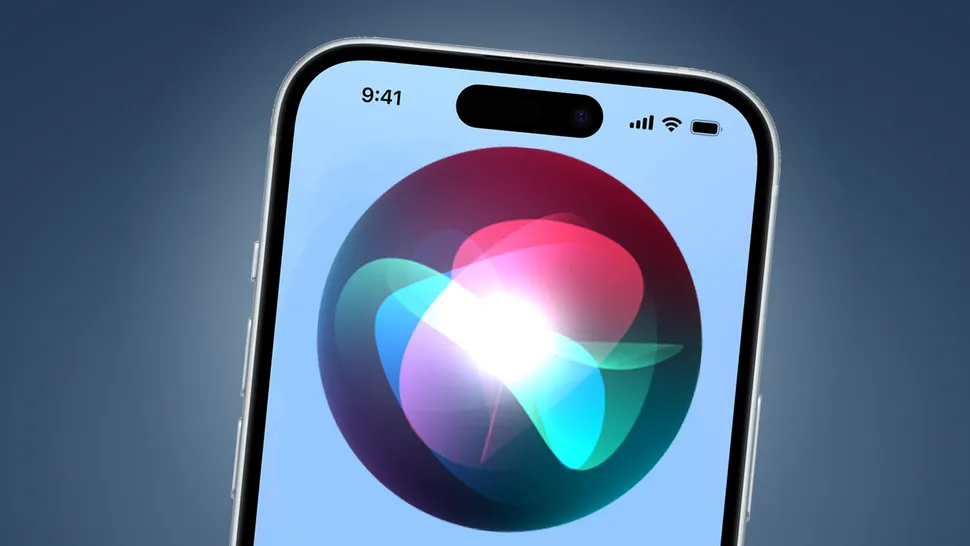
Apple employed AI to improve Siri in iOS 18. It now has more natural language processing functions, allowing you to fumble your words and make mistakes while still being understood. It also remembers what you just asked it, so you can continue the discussion, and it uses data from Photos, Calendar, Messages, and other apps to learn more about you, allowing you to ask questions such, “When is my next appointment with Joe?”.
In contrast, Samsung’s latest phones feature Google Gemini, Google’s AI chatbot. Gemini can do almost everything it can do on the internet, but only on your phone. It also combines with Google’s products, such as Gmail and Calendar, to learn more about you in a way that’s similar to Siri.
Gemini can compose text, make images, and identify photos, and it promises to execute the majority of its processing on the device, only connecting to the cloud when necessary, which improves security. Gemini can also multitask, allowing you to watch a video on your phone while asking questions about it in the Gemini sidebar. The only minor issue is that Samsung has stated that this function will be available “soon,” but has not yet specified a precise timeframe.
Because Apple has secure access to a large amount of customer data, we believe Siri will perform slightly better in the digital assistant elements than Gemini, but we’d have to test them side by side to be certain. For example, you can ask Siri when your mother’s plane will land, and it will recognize her and calculate the landing time based on your chats and emails. However, while Siri must call in ChatGPT for more complex queries, Gemini is already a fully equipped chatbot implementation, making it difficult to compare the two. We do know that whether you say “Hey Siri” or “Hey Google”, AI will be extensively embedded into your next phone.
Provisional winner: Apple
Health apps
Interestingly, Apple made no mention of leveraging Apple Intelligence to improve the functionality of its iOS Health app in the iOS 18 preview at WWDC. In contrast, Samsung claims that its Health app will employ Galaxy AI to analyze massive quantities of data on your sleep patterns, heart rate, activity levels, stress, and respiratory rate to calculate an overall energy score out of 100. This energy score, paired with recommendations throughout the day on how to enhance it, allows you to determine whether you should take it easy or push harder with your activity.
Provisional winner: Samsung
Writing tools
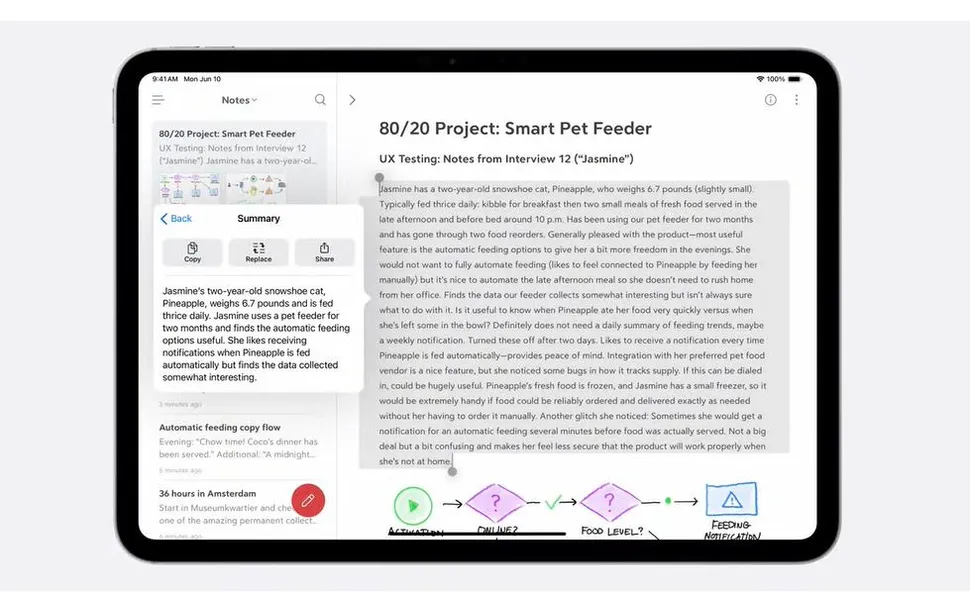
The capacity to generate language that could have been written by a human was what originally piqued the world’s interest and exposed the power of AI chatbots, and both Galaxy AI and Apple Intelligence are bringing this functionality to your next phone, albeit in different ways.
Apple’s integrated writing tools work more like an assistant for previously produced content. If you’re typing an email, iOS 18 can rewrite it in a different style or highlight the main parts and proofread it. Galaxy AI makes use of Gemini, Google’s AI chatbot, which can accomplish similar tasks but is not as integrated into Gmail or the mail interface. It does, however, include tools built into its Mail program, such as Composer, which makes emails based on prompts, so you might enter, “Write Jenny an email about why I can’t come to her party”, and it would generate the text.
Since iOS 18 now includes access to ChatGPT, producing text must also be possible, but we have yet to see how it will be done in comparison.
Provisional winner: Apple
Images and photos
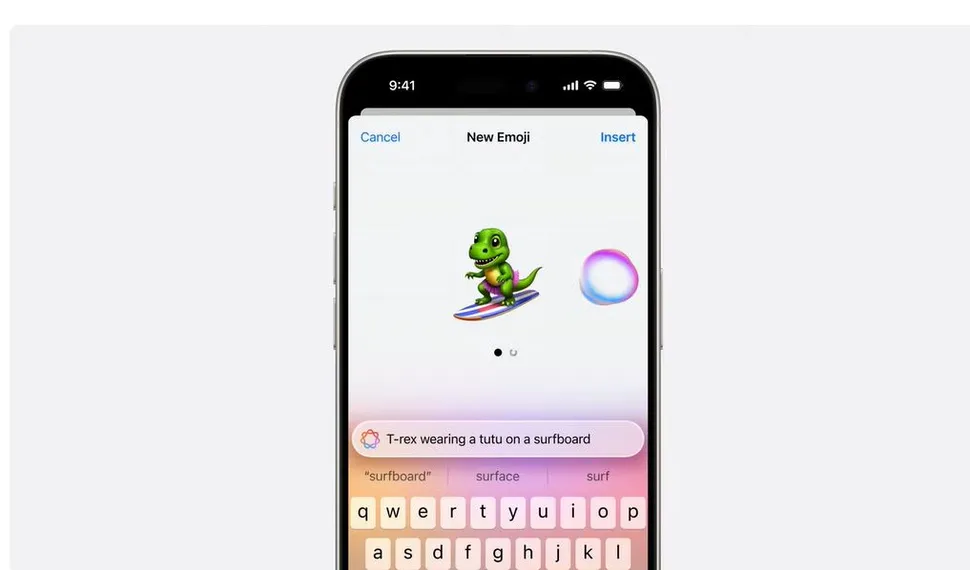
One of the main selling features of Apple Intelligence is the ability to create your own emojis from suggestions, such as “a fish wearing a tuxedo” or “a smiley face with cucumbers for eyes”. These Genmojis can also access your Photos library, allowing you to make them using photos of your own friends and family, which is quite ingenious.
While both Samsung and Apple have a slew of AI functions for cleaning up, editing, and removing unwanted items from your images, nothing compares to Genmoji in Samsung’s Galaxy AI offering. Samsung has demonstrated that the new Galaxy phones can produce a 3D representation of a person from a photo, but we’re still going to give this one to Apple.
Apple also offers Image Playground, an AI image creator that recognizes the people in your photo library. Once made, you may include them in your prompts, making it simple to generate fun images like “James winning a marathon” or “Dad climbing Everest”.
Provisional winner: Apple
Translation
Interpreter is a key feature of the new Samsung phones, allowing them to translate between languages on the fly. So you may speak in English and have it translated into, say, Thai for the person standing in front of you. The phone will also read out the text. It also works in phone calls and is especially well suited to the Samsung Galaxy Z Flip 6, which has a screen that can be viewed by two people at the same time, allowing you to use it in person to get quick text translations done in the palm of your hand.
Meanwhile, Apple offers the Translate app in iOS, but while it can take voice input, its output is limited to text. Samsung has a significant advantage in this regard.
Provisional winner: Samsung
Search
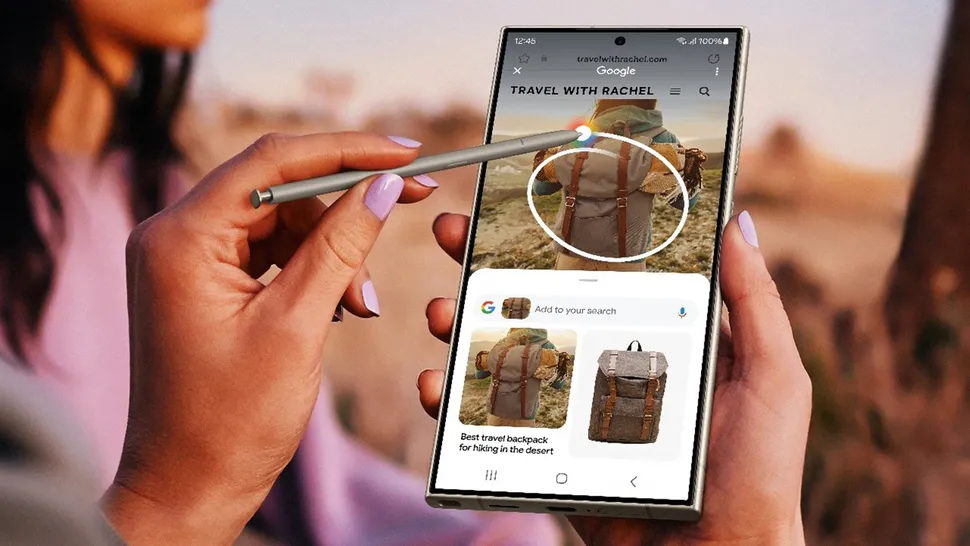
Circle to Search is an excellent image-based search tool that is already available on some Android phones and will be included in both of the upcoming Samsung Galaxy models. Simply draw a circle around an image, and Galaxy AI will identify and search for it.
While Apple has enhanced natural language search on the iPhone’s Photos app, it has no control over web searches because it is not affiliated with Google. Samsung has an advantage here.
Provisional winner: Samsung
And the initial winner is…
Samsung! Galaxy AI and Apple Intelligence do exceptionally well against one another. They have basically identical feature sets; it is simply a matter of preference for implementation and whether you are tempted by fun things like Genmoji.
Apple Intelligence appears to be more completely embedded into the OS than Samsung’s Galaxy AI, although Samsung has some neat tricks up its sleeve, including Interpreter, Circle to Search, and AI advances in its Health app.


